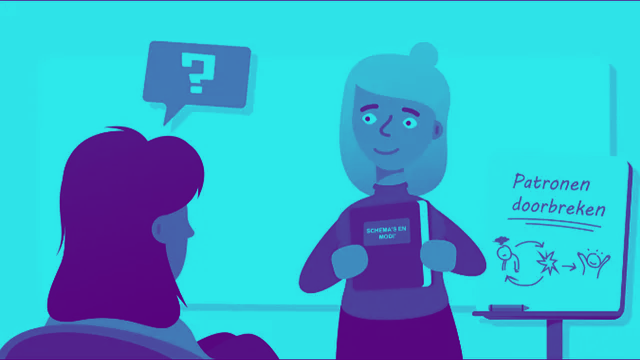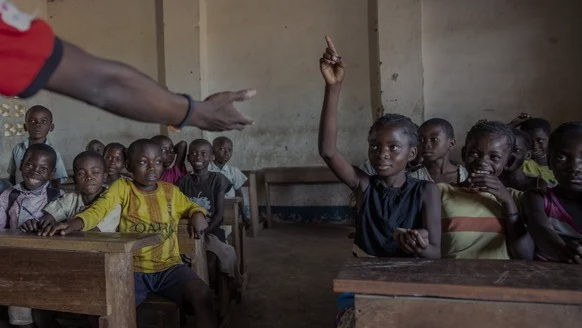Portfolio
Do everything you do with an open mind, interest and as much fun as possible.
Virtual Reality in Cognitive Behavioral Therapy for Depressed Patients
Together with Lizette van Eck and Marjolein van Woudenberg (GGZ-Delfland), I am conducting research into the use of virtual reality in the treatment of depression. With the help of cognitive behavioral therapy and VR, people practice moving in social environments. We use a single case experimental design to evaluate the effects of the therapy.
Using the biopsychosocial model for identifying subgroups of detained juveniles at different risk of re-offending in practice: a latent class regression analysis approach
Together with my colleagues from UMC-VUmc and LUMC, Esther de Ruigha, Arne Popmaa, R. Vermeirenc, Lieke. van Domburgha,d, and Lucres Jansen, we investigated whether subgroups can be distinguished among delinquent young people who risk committing a re-offending. We used psychological and sociological features as well as neurobiological markers. Using a latent class regression analysis, we found three distinct subgroups that could very well predict whether a young person was at high risk of re-offending. I developed an online app that can be used to predict the risk of recidivism for a young person based on available characteristics.
The impact of dynamic light exposure on the sleep and activity pattern of people with dementia
Together with Ellen van Lieshout-van Dal, Liselore Snaphaan, Yvonne de Kort and Inge Bongers, we are investigating whether it makes sense to place a dynamic light on people with dementia. Dynamic light is already being used in many institutions because it is said to have positive effects on activity, sleep and well-being. But is it also possible to let people who still live at home receive more dynamic light? An interesting and meaningful project with many snags due to a complicated heterogeneous population. We opted for a single case experimental design to accommodate the heterogeneity of the small sample. We hope to be able to conclude something at group level with randomization tests...
Brief individual experiential schema therapy in adult outpatients with cluster C personality disorders: Does it work?
Together with Rowina Vermeer and Annemieke Starrenburg (GGZ-Delfland), we investigated with a single case experimental design whether a short individual schema therapy works in people with a cluster C personality disorder. The randomization tests showed that well-being and negative beliefs improved at the follow-up measurement immediately after the therapy and also after 6 months.
Sample size Can't Wait to Learn Uganda
Warchild has a great project for children in unsafe war zones: can't wait to learn. With the help of education via tablets, an attempt is made to keep the learning disadvantage of these children as small as possible. To evaluate this project in Uganda, we are conducting an experiment. Children from different communities are assigned to the program or to the control group and we look at the progress of their language and math skills. The question from Warchild to me was to determine the number of communities so that there is enough power to find an effect.
Workshop Conference Small is Beautiful {again}
On April 15, I was allowed to give a workshop for the conference Small is Beautiful about Single Case Designs organized by my colleagues in Leuven. I talked about power of randomization testing in SCEDs. Despite the now well-known online vicissitudes, it was a very nice experience.
EMDR therapy for PTSD symptoms in patients with mild intellectual disability or borderline intellectual functioning and comorbid psychotic disorder: A case series Research in Developmental Disabilities
The effectiveness of EMDR to treat PTSD has been fairly well established in recent years. But does the therapy also work for people with a below-average IQ and psychosis? I investigated this together with Rosita Penninx Quevedo (GGZ Oost Brabant), Ad de Jongh (Acta) and Robbert Didden (Radboud University). Using a single case experimental design, visual inspection and a randomization test, we investigated the effectiveness of the therapy in 6 people. The results are promising: even in this difficult target group, EMDR therapy seems to have an effect.
Associations between well-being and therapy outcomes; a longitudinal study through routine outcome monitoring
Together with Els van der Vlist (Mental Better), Laura Kunst (Tilburg University) and Ernst Bohlmeijer (University of Twente), we investigated whether the well-being and complaints prior to psychotherapy were predictive of the duration of the treatment and their complaints after the therapy. . The moderation regression analyzes with a sample of 563 people showed that the severity of the complaints at the start of the treatment was mainly a predictor of the treatment duration and the complaints after treatment.
Psychometric Validation Math and Literacy tests
For Warchild's Can't Wait to Learn Project the Math and Literacy tests needed to be validated. We used mokken scale analysis to investigate the quality of the items and factor analysis to investigate the internal valiidty of the tests.
Psychometric properties of the short-form CART: Investigating its dimensionality through a Mokken Scale analysis
In this study together with my colleagues Marion Tillema (Avans University of Applied Sciences) and Peter Verkoeijen (Avans University of Applied Sciences & Erasmus University) examined the validity of a critical thinking scale (CART short form). We used scale analysis mugs to investigate the dimensionality of the scale.












